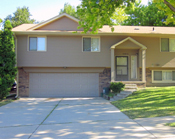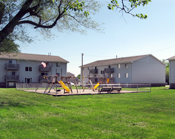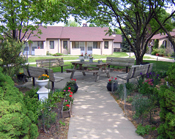About

Douglas County Housing Authority was established in December of 1975. Our goal was to meet the need for decent, safe, sanitary and affordable housing for low to moderate income families, individuals, elderly and disabled persons.
DCHA is governed by a seven-member Board of Commissioners, including a Resident Commissioner, who are appointed by the Douglas County Board of Commissioners. Our policies and priorities are established through a Five-Year/Annual Plan. DCHA receives the majority of its funding from the U.S. Department of Housing and Urban Development HUD), which has rated us a High Performer.
Our Mission
The mission of the Douglas County Housing Authority is to be a proactive, leading, and innovative affordable housing agency and advocate in assisting lower-income family, elderly, and disabled residents with their housing needs as clients are striving to achieve self-sufficiency or independent living.
Our Vision

The vision of the Douglas County Housing Authority is to provide affordable housing opportunities and options to the subdivisions and small community jurisdictions in the greater Omaha metropolitan area. The provision of affordable housing will be highly responsive to rapidly changing development trends, growth patterns and consumer preferences. Other macro-environmental economic, social, technological and demographic influences will also be closely monitored, analyzed and factored into proactively accomplishing the DCHA mission. Board/executive policies, strategic thinking, and business models will provide the DCHA with the evaluation framework necessary to advance its housing vision. Opportunities for partnerships will also be maximized to ensure collaboration, funds leveraging and competency sharing.
Our Values
In addition to the values of self-sufficiency or independent living, residents will be provided with housing choices that are free of housing discrimination and architectural barriers. Housing sites and developments will be quality living environments that meet high standards for urban design and energy conservation. Programs and services will be administered with efficiency, effectiveness, and equity.











